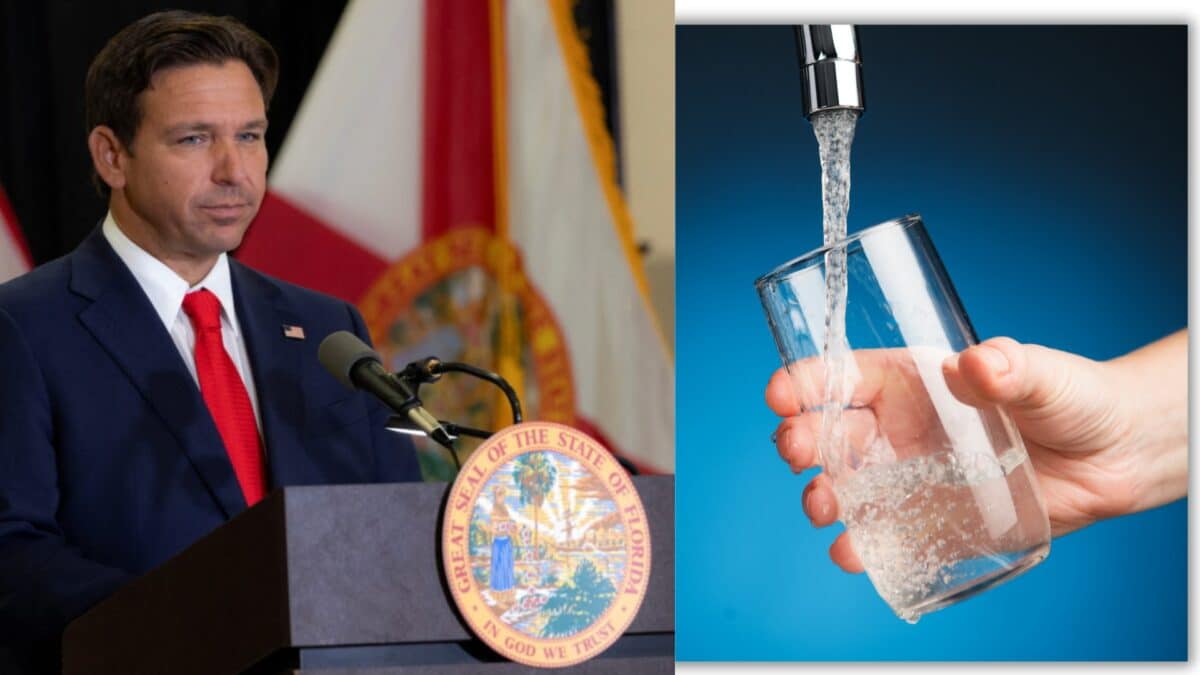Florida Governor Ron DeSantis has signed a new law banning the addition of fluoride to public drinking water, making the state the second in the nation after Utah to adopt such a statewide prohibition. The bill, signed during a public event in Dade City, is scheduled to take effect on July 1 and will prevent local governments across the state from fluoridating their water supplies.
The measure was passed by the state legislature last month and received support from DeSantis despite opposition from dentists and public health organizations, who argue that water fluoridation is a critical tool in preventing tooth decay. According to the Centers for Disease Control and Prevention (CDC), adding low levels of fluoride to public water systems has been a widely endorsed practice for strengthening teeth and reducing cavities for generations.
Conflicting Views on Health and Personal Choice
At the bill signing, DeSantis stated that the law aims to preserve individual choice. “When you do this in the water supply, you’re taking away a choice of someone who may not want to have overexposure to fluoride,” he said. This approach aligns with broader efforts by some Republican-led states to reduce or eliminate certain public health mandates, particularly those affecting mass populations.
Earlier this month, Miami-Dade County commissioners voted to proceed with the removal of fluoride from the county’s water system, overriding a veto by Mayor Daniella Levine Cava. In her statement, the mayor warned the move could “have long-lasting health consequences, especially for our most vulnerable families,” describing water fluoridation as a “safe, effective, and efficient way to maintain dental health.”
BREAKING: Florida Gov. Ron DeSantis signed a measure Thursday prohibiting local governments from adding fluoride to their water systems, making it the second state in the country after Utah to implement a statewide ban on the mineral. https://t.co/dFgiqIZ9Rj
— WSVN 7 News (@wsvn) May 15, 2025
Ties to National Political Movements
The Florida law follows a similar ban in Utah, which went into effect in late March. The trend has gained momentum alongside advocacy from U.S. Health Secretary Robert F. Kennedy Jr., who has publicly campaigned against water fluoridation. DeSantis’ announcement was supported by Florida Surgeon General Joseph Ladapo, who has previously drawn attention for his opposition to federal public health guidelines, including those related to COVID-19 vaccines.
The law will also require the removal of other additives in addition to fluoride from water systems. DeSantis has emphasized the availability of alternative sources of fluoride, such as toothpaste and mouthwash, as sufficient for maintaining dental health without adding the mineral to communal water supplies.
Scientific Concerns About Fluoride Intake
Health officials have long considered community water fluoridation a major public health success. The CDC includes it on its list of top ten public health achievements of the 20th century. Still, some studies have raised concerns about excessive fluoride exposure. According to the CDC, too much fluoride can cause dental fluorosis, leading to streaking or spots on teeth, and emerging research has suggested a potential connection between fluoride and neurodevelopmental risks.
The new Florida law reflects a growing divide between federal health recommendations and state-level policy decisions regarding water treatment and public health strategy. With implementation slated for July, local municipalities will begin adjusting their water systems to comply with the statewide mandate.










